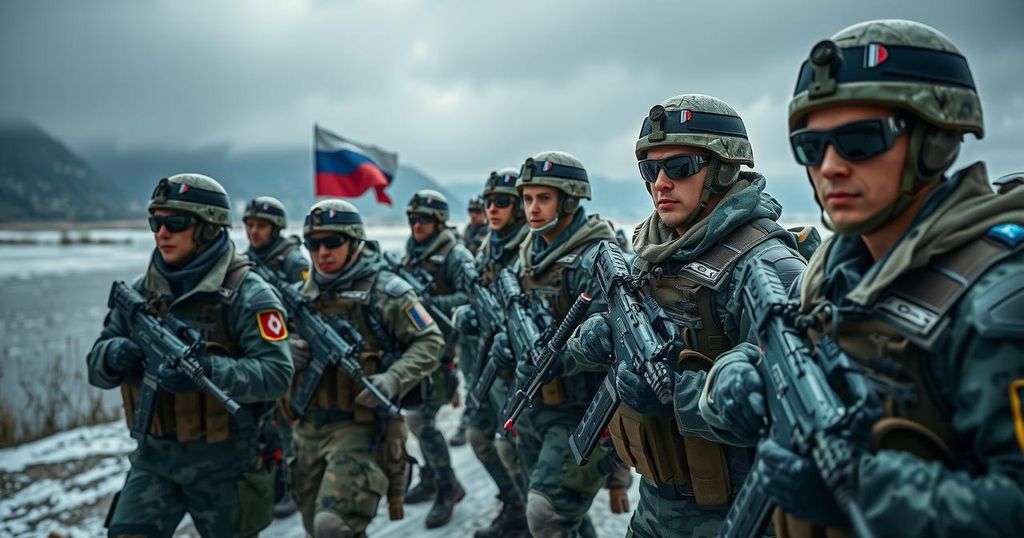North Korea’s deployment of troops to Russia complicates China’s diplomatic balancing act between supporting Moscow and addressing Western concerns. Global leaders urge Chinese President Xi Jinping to apply pressure on North Korea, as the military alliance raises fears of escalating conflict. The situation reflects China’s intricate positioning in a geopolitical landscape marked by competing interests and regional stability risks.
In recent developments, North Korea’s troop deployment to Russia, where over 10,000 soldiers are joining the conflict against Ukraine, has sparked international concerns regarding the ramifications for China’s foreign policy. During recent summits in Brazil and Peru, world leaders urged Chinese President Xi Jinping to exert pressure on North Korea to reconsider its military support for Russia. Xi Jinping, while advocating for peaceful dialogue in Ukraine, finds himself caught in a delicate balancing act between maintaining relations with both Russia and Western nations, which view the troop deployment as a potential escalation of the war.
Notably, German Chancellor Olaf Scholz and South Korean President Yoon Suk Yeol directly urged Xi to take a constructive approach in addressing the North Korea-Russia military cooperation. Such pressures from significant trading partners showcase the international unease surrounding China’s perceived tacit endorsement of the alliance. Despite the pressure, China is hesitant to confront North Korean leader Kim Jong Un, concerned about destabilizing its relationship with Pyongyang.
China’s position remains complicated; while it seeks to support Russia without inflaming tensions with the West, it also wishes to avoid alienating North Korea. This precarious stance is highlighted by Patricia Kim from the Brookings Institution, who notes Beijing’s discomfort with Pyongyang’s military actions and the potential risks posed to Chinese interests and regional stability. The ongoing cooperation between North Korea and Russia appears to challenge China’s position in a rapidly shifting geopolitical landscape, further complicated by U.S. sanctions on Chinese companies aiding Russian military efforts.
Despite these challenges, experts suggest that China may prioritize its alliance with Russia over its concerns regarding North Korea, emphasizing their shared interests against the U.S. and the Western order. Overall, the situation underscores the intricate dynamics involving China, North Korea, and Russia amid global geopolitical tensions, wherein each nation’s actions carry significant implications for regional security and international relations.
The increasing military cooperation between North Korea and Russia amidst the ongoing conflict in Ukraine poses complex challenges for China, which balances its relationships with both nations while also managing pressures from the West. This evolving situation sets the stage for a geopolitical standoff, with calls for China to play a more influential role in curbing North Korean military escalations that could further exacerbate hostilities in Eastern Europe and beyond. The historical context of China’s nonalignment policy complicates its response, as it navigates economic dependencies and strategic partnerships.
In summary, the deployment of North Korean troops in support of Russia’s military campaign in Ukraine presents a significant challenge to China’s diplomatic efforts. As global leaders urge Beijing to intervene and mitigate the situation, President Xi Jinping’s strategic choices reflect a complex interplay of military alliances and international pressures. China’s reluctance to confront its allies, North Korea and Russia, reveals a broader geopolitical strategy to avoid antagonism, even amidst growing international scrutiny and potential repercussions on diplomatic relations.
Original Source: www.voanews.com






